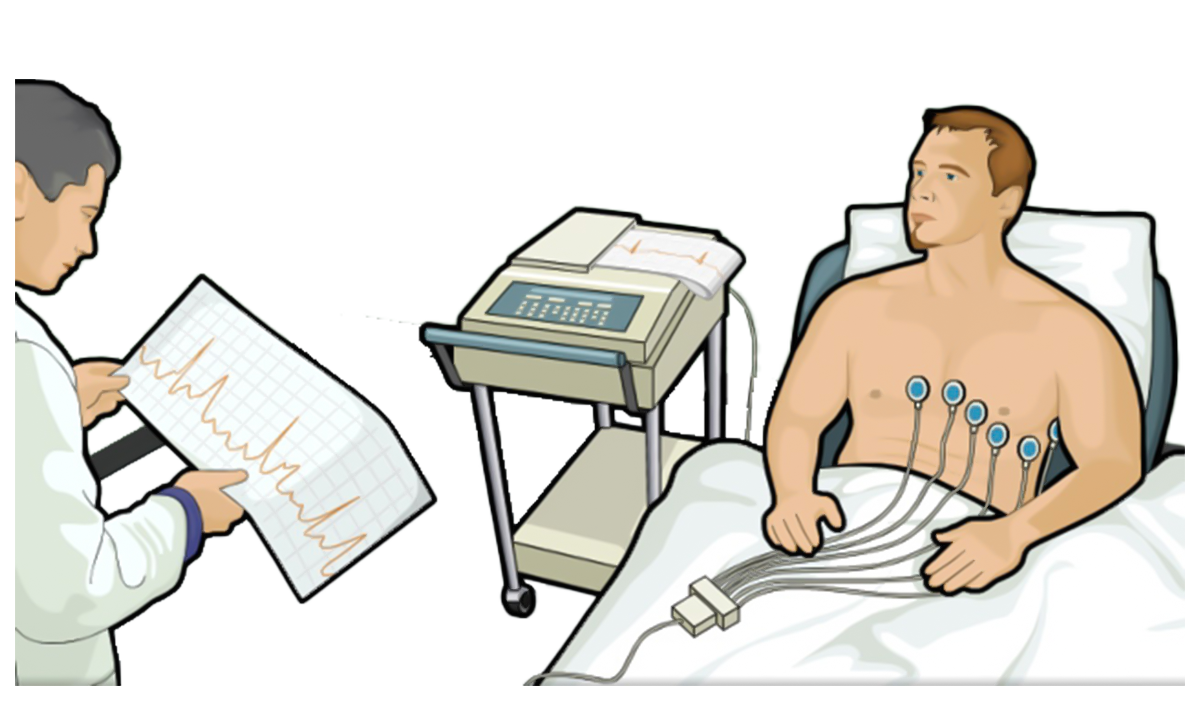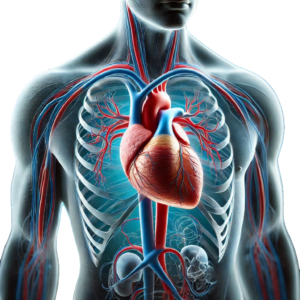This Course Structure is Curated as per the NEP-2020 Guidelines
Course Overview
B.Sc. Cardiology Technology Non-Invasive (ECG, 2D Echo, TMT & Holter) program at Malla Reddy Vishwavidyapeeth, Hyderabad, is an undergraduate program designed to train students to assist cardiologists in non-invasive cardiac diagnostics and patient care.
This program focuses on equipping students with the theoretical knowledge and hands-on skills from 1st semester itself. The curriculum integrates in-depth understanding of cardiac anatomy, pathophysiology, operation of state-of-the-art diagnostic equipment andtraining in performing and interpreting Electrocardiograms (ECG), 2D Echocardiography (2D Echo), Treadmill Testing (TMT), and Holter Monitoring. Students gain expertise in assessing cardiac function, monitoring heart rhythms, and detecting abnormalities, playing a crucial role in accurate diagnosis and treatment planning. Emphasis is placed on mastering techniques to evaluate arrhythmias, ischemia, and other cardiac conditions while adhering to patient safety and ethical standards.
Graduates of this program emerge as proficient Cardiology Technologists, enabling them to pursue further higher studies & do research in Cardiology Technologists along with plenty of job opportunities globally.

Course Details
Description: 4 Years Degree Program
No. of Seats: 40
No. of Credits: 160 minimum & as specified
- Eligibility
- Curriculum Structure
- Program Outcomes
- Career Enhancement
- Higher Studies
- Job Roles & Progression
The minimum eligibility for B.Sc. Cardiology Technology (ECG, 2D Echo, TMT & Holter) is a pass in 10+2 with at least 50% in Physics, Chemistry and Biology from a recognized board (CBSE/ISC) or equivalent.
| Semester | Name of the Subject |
| Semester 1 | Anatomy – I Physiology – I Biochemistry – I Fundamentals of Cardiology Technology Practical: Cardiovascular Anatomy and Physiology English & Communication Skills, Computer Applications |
| Semester 2 | Anatomy – II, Physiology – II, Biochemistry – II, Pathology and Microbiology, Basics of Cardiac Instrumentation, Practical: Instrumentation and Pathology |
| Semester 3 | Electrocardiography (ECG), Pharmacology in Cardiology, Basics of Echocardiography (2D Echo), Clinical Application of Stress Testing (TMT), Practical: ECG and Stress Testing Techniques |
| Semester 4 | Advanced Echocardiography, Holter Monitoring and Analysis, Research Methodology and Biostatistics, Cardiovascular Imaging Techniques, Practical: 2D Echo and Holter Monitoring |
| Semester 5 | Pediatric Cardiology, Cardiac Rehabilitation and Patient Care, Emergency Management in Cardiology, Quality Assurance in Cardiology Technology, Practical: Pediatric Cardiology and Rehabilitation |
| Semester 6 | Advances in Cardiology Diagnostics, Non-Invasive Cardiology Techniques, Cardiology Equipment Calibration and Maintenance, Practical: Non-Invasive Diagnostics |
| Semester 7 | Internship in Cardiology Diagnostics, Case Studies in ECG, TMT and Holter Analysis, Practical: On-Job Training in Cardiology Units |
| Semester 8 | Advanced Internship, Thesis/Research Project, Entrepreneurship in Cardiology Diagnostics, Practical: Clinical Operations in Cardiology Technology |
- Electrocardiography (ECG) Expertise: Training in capturing, analyzing, and interpreting ECG data.
- 2D Echocardiography Proficiency: Skills in performing and interpreting echocardiograms for cardiac function assessment.
- Stress Testing (TMT): Expertise in conducting treadmill tests and monitoring cardiovascular responses to stress.
- Holter Monitoring and Analysis: Competence in setting up, recording, and analyzing long-term cardiac monitoring data.
- Cardiac Imaging Techniques: Knowledge of imaging technologies for diagnosing cardiovascular conditions.
- Emergency Management in Cardiology: Skills in managing acute cardiac emergencies and patient stabilization.
- Certification in Advanced ECG Interpretation: Specialized training in identifying complex arrhythmias and cardiac abnormalities.
- 2D Echocardiography Certification: Advanced training in echocardiogram techniques and analysis.
- Stress Testing (TMT) Certification: Focuses on advanced treadmill test protocols and diagnostics.
- Holter Monitoring and Ambulatory Diagnostics Certification: Training in continuous monitoring and analysis of cardiac activity.
- Emergency Cardiac Care Certification: Covers emergency management in cardiology units.
- M.Sc. in Cardiology Technology
- Postgraduate Diploma in Non-Invasive Cardiology
- Master’s in Cardiac Rehabilitation
- Ph.D. in Cardiovascular Science
| Duration | Roles and Responsibilities | Salary Range |
| 0-3 years | Cardiology Technician, ECG/TMT Technologist | ₹4,50,000 – ₹6,50,000 per annum |
| 3-5 years | Cardiology Technologist, 2D Echo Specialist | ₹6,50,000 – ₹9,00,000 per annum |
| 5-10 years | Senior Cardiology Technologist, Holter Monitoring Specialist | ₹9,00,000 – ₹12,00,000 per annum |
| 10+ years | Chief Cardiology Technologist, Consultant in Non-Invasive Cardiology | ₹12,00,000+ per annum |
Note: Salaries vary based on experience, location, and type of healthcare institution.

Fee Structure Per Academic Year - 2025
| Tuition Fee | Miscellaneous Fee | Scholarship | |||
| 160000 ₹ | 10000 ₹ | Above 95% – 160000 ₹ | Above 91% – 80000 ₹ | Between 81-90% – 16000 ₹ | Between 71-80% – 8000 ₹ |
| Tuition Fee | Miscellaneous Fee | Scholarship | ||
| 160000 ₹ | 10000 ₹ | Above 90% – 32000 ₹ | Between 80-90% – 16000 ₹ | Between 70-80% – 8000 ₹ |




